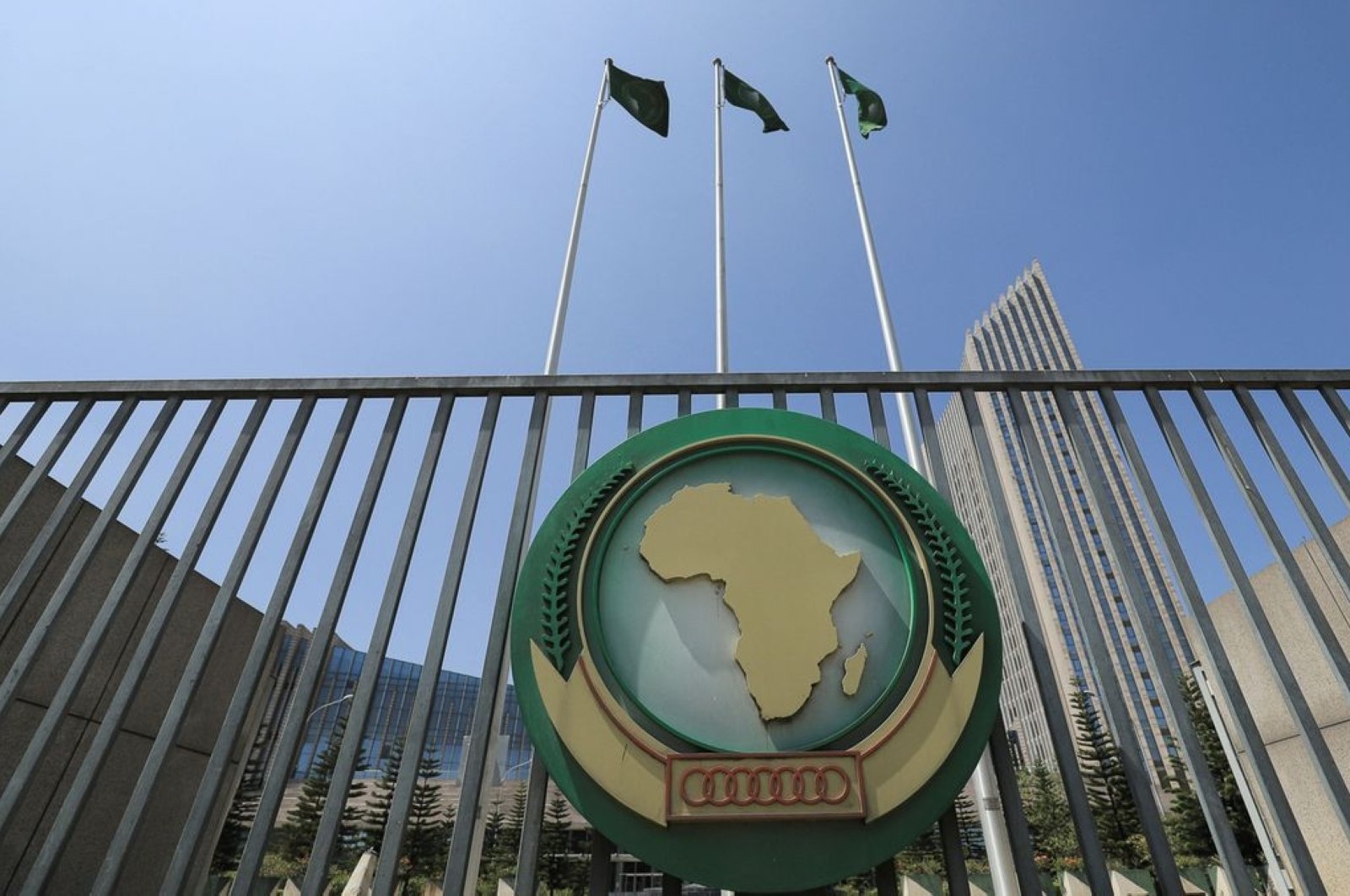In recent years, Africa has been the subject of competition between global and regional actors with its natural resources and geostrategic importance. Historical colonial actors such as France and the United Kingdom continued to exist on the continent with the neocolonial policies they formed after decolonization. The United States, which remained a great power in the international system after the Cold War, has been one of the influential actors in Africa.
Awakening from its deep sleep in Asia, China aimed to become a global power with rapid economic development. For this purpose, it quickly turned to Africa because of the raw materials and energy resources required for its industry and its wide market opportunities. In addition, the Beijing administration has rapidly increased its presence in the continent as it does not seek democratic and human rights observance conditions and structural harmony in its relations with African states experiencing political and economic crises in contrast to Western states. Thus, as defined by many experts, the “Second Cold War” began to take place between the U.S. and China, and Africa became the scene of this struggle. On the other hand, Russia, the successor of the Soviet Union, turned to its own internal problems in the first years, and therefore there was a pause in its African policies.
Since the early 2000s, the main challenges in Africa have been observed between the U.S. and China. However, with the administration of former U.S. President Donald Trump, the focus of American foreign policy began to shift to the Asia-Pacific region, and African policies regressed relatively. Meanwhile, China has become the most influential actor in the continent, with its debt diplomacy, infrastructure projects, and bilateral and multilateral trade volume of more than $255 billion with Africa.
China’s economic superiority lingers
While China’s economic superiority in Africa continues, new challenges have begun to emerge in the region. In recent years, France has suffered a heavy loss of prestige in its former colonies. So much so that anti-French protests were held from time to time in countries such as Mali, Chad, Niger, Burkina Faso, Algeria and Senegal, which were ruled by French colonial and neocolonial policies for many years. In the coup that took place in Burkina Faso in October, the failure of the overthrown government in the fight against terrorism together with France was emphasized and signals were given that the putschists would seek new cooperation with Russia in the field of security. Indeed, although not officially, through the Wagner Group, Russia has started to have an influence in recent years, especially in many countries in Africa, where France has lost power. Again, the fact that the people took to the streets and shouted slogans in favor of cooperation with Moscow with Russian flags during the Burkina Faso coup can be interpreted as an indicator of this situation. As a result, hot competition continues between France and Russia over Africa.
However, just as this rivalry continued, the Ukraine-Russia War started in February and added a new dimension to the challenges in the region. Especially the food and energy crises experienced due to the war further reinforce the food crisis that African peoples have been facing for a long time. In their contacts with African countries, for which they aim to receive political support, French and Ukrainian officials emphasize that Russia’s aggressive behavior is the cause of the recent food crisis in Africa. Russia, meanwhile, denies these allegations in its increased contacts toward the continent against this propaganda. So much so that, at this point, Russia is confronted with Ukraine as well as France in Africa.
As known, about a week after the start of the war, the soldiers in the Central African Republic pledged their allegiance to Russia and declared that they were ready for a war against Ukraine. After this development, which shows how much Russia’s influence in Africa has increased, Senegal’s President Macky Sall tweeted that Ukrainian President Volodymyr Zelenskyy wanted to appeal to the African Union (AU) to get the support of African states.
In the following process, Ukraine’s efforts to seek support from the African continent continued and Ukrainian Foreign Minister Dmytro Kuleba carried out an African tour starting from Senegal between Oct. 3 and Oct. 12, 2022. Considering the Burkina Faso coup carried out under the shadow of Russian flags a week ago and the increasing influence of Russia on the continent, it is possible to say that the reason for Kuleba’s travels was to seek the support of African countries for Ukraine against Russian aggression and to limit Russia’s influence in the region. There are also allegations that hundreds of people from various African countries are fighting against Russia on the Ukrainian front. However, some countries, such as Nigeria, are trying to prevent their citizens from joining the war as foreign soldiers by opposing them. While the minister of Foreign Affairs of Ukraine was continuing his Africa tour, Putin called Assimi Goita, Mali’s transitional president, and personally invited him to the second Russia-Africa Summit.
U.S.-Russia competition
The Biden Administration also participated in this competition between Russia, Ukraine and France in Africa. The U.S., whose primary aim is to prevent the influence of China, aims also to limit Russia in Africa. The U.S.-Africa Leaders’ Summit held on Dec. 13-15 is of great importance in this sense. At the Summit meeting attended by 50 African leaders, U.S. President Joe Biden announced that in three years, $55 billion of aid will be transferred to the continent for the realization of the 2063 goals.
On the other hand, Washington announced that they will support the African Union’s permanent membership in the G-20. As known, African leaders have been advocating for a long time that Africa should be represented in important international organizations such as the G-20 and the United Nations Security Council. Sall, also the current chairperson of the AU, who took the floor in the session titled “Energy and Food Security” at the G-20 meeting held in Indonesia in November, emphasized that Africa, as the world’s eighth largest economy, should be a permanent member of the G-20. The U.S. administration aims to strengthen its ties with Africa by responding positively to this demand.
The U.S. supports Africa to have a permanent seat in the U.N. Security Council as well as the G-20. In addition to the U.S., other Western permanent members of the Security Council, the U.K. and France, also show a positive attitude in favor of new reforms that will include the permanent representation of Africans in the Security Council. However, they also have an ambivalent attitude by keeping a distance from the issue of the veto right of this permanent representation. Russia and China, on the other hand, are totally against the presence of a permanent representative in the Security Council from Africa. Since these two states are worried about the creation of a majority that can oppose them.
On the other hand, it is possible to say that this attitude of China and Russia is against the spirit of BRICS. This is because, Article 14 of the joint declaration of the leaders of BRIC (South Africa was not a member at that time) in Yekaterinburg, Russia, on June 16, 2009, is about the necessity of U.N. reform in order to provide a more just and inclusive mechanism in solving global problems. However, despite this, Russia and China are distant to the request of South Africa, one of the BRICS members, for a permanent representative from Africa in the Security Council.
As a result, it is possible to say that the sparks of global challenges in Africa also spread to organizations such as the U.N., G-20 and BRICS. The U.S., France and the U.K. use the issue of representation of the continent in international organizations as a tool to strengthen their relations with African states. However, the conditional approach of these countries to the issue of African representation in the U.N. Security Council due to their veto right raises questions. On the other hand, President Recep Tayyip Erdoğan’s long-standing mantra that “the world is bigger than five,” calling for a reform in the U.N. and supporting the unconditional representation of regions such as Africa in the new order to be constructed, creates positive effects in relations.
As a matter of fact, this positive atmosphere was felt in the speeches of President Erdoğan, who held a joint press conference in Ankara on Dec. 21, and Sall, who is president of Senegal and term president of the AU. Sall thanked Türkiye for its positive attitude to the demand for Africa to be represented in the G-20 and for sharing the same values in creating a fairer global order.



